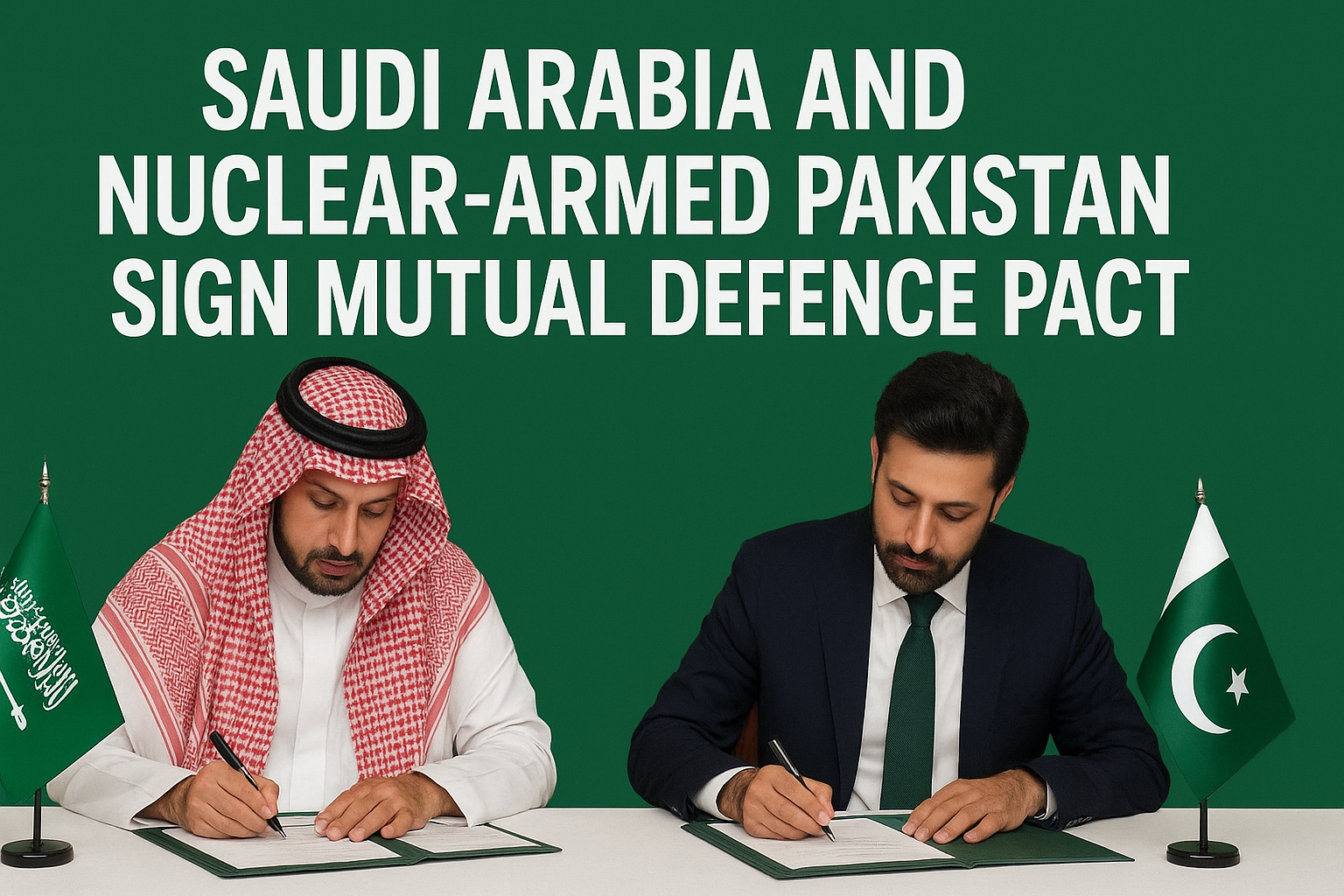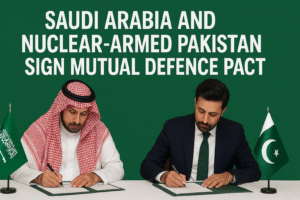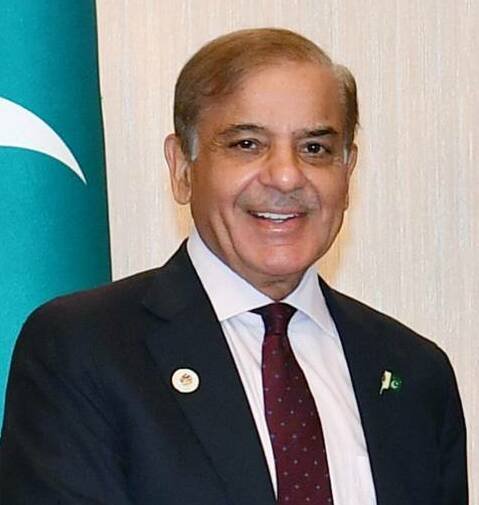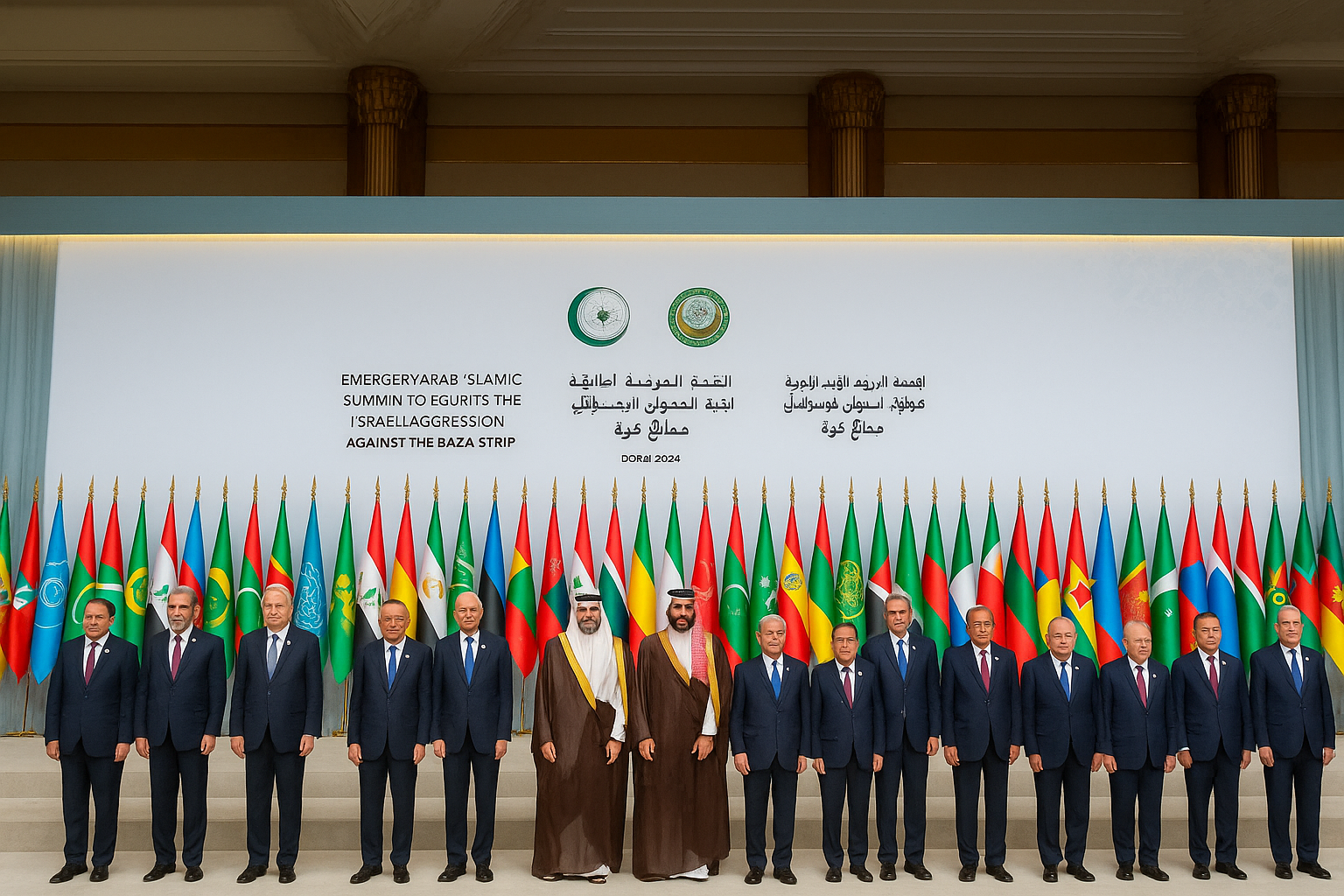DUBAI/ISLAMABAD, Sept 17 (Reuters) – On Wednesday, Saudi Arabia and nuclear-capable Pakistan formalized a mutual defense agreement, significantly enhancing a security partnership that has spanned decades amidst rising regional tensions.
This strengthened defense relationship arises as Gulf Arab nations grow increasingly skeptical about the reliability of the United States as their traditional security provider. The recent Israeli assault on Qatar has intensified these apprehensions.
“This agreement is a culmination of years of discussions. This is not a response to specific countries or specific events but an institutionalization of longstanding and deep cooperation between our two countries,” a senior Saudi official told Reuters when asked about its timing.
Israel’s airstrikes targeting Hamas political leaders in Doha, while they were engaged in discussions regarding a ceasefire proposal mediated by Qatar, have provoked outrage among Arab nations.
The agreement has the potential to alter the strategic dynamics in a region characterized by complexity. As allies of Washington, Gulf monarchies have been striving to stabilize relations with both Iran and Israel to address enduring security issues.
However, the ongoing Gaza conflict has disrupted the regional landscape, with Gulf state Qatar experiencing direct attacks on two occasions within a year, once from Iran and once from Israel.
The Saudi agreement followed months after Pakistan was involved in a brief military confrontation with its rival India in May. India’s Ministry of External Affairs spokesman, Randhir Jaiswal, stated on the social media platform X on Thursday that India is aware of this development and will assess its implications for New Delhi’s security and regional stability.
A senior Saudi official, speaking on the condition of anonymity, recognized the necessity of balancing relations with Pakistan’s rival, India, which is also a nuclear power.
“Our relationship with India is more robust than it has ever been. We will continue to grow this relationship and seek to contribute to regional peace in whichever way we can.”
When inquired whether Pakistan would be required to extend a nuclear umbrella to Saudi Arabia under the agreement, the official responded: “This is a comprehensive defensive agreement that includes all military capabilities.”
Pakistani state television broadcast footage of Pakistani Prime Minister Shehbaz Sharif and Saudi Crown Prince Mohammed bin Salman, the de facto leader of the kingdom, embracing after the signing of the agreement. Present at the event was Pakistan’s army chief, Field Marshal Asim Munir, who is considered the most influential figure in the country.
“This agreement, which reflects the shared commitment of both nations to enhance their security and to achieving security and peace in the region and the world, aims to develop aspects of defense cooperation between the two countries and strengthen joint deterrence against any aggression. The agreement states that any aggression against either country shall be considered an aggression against both,” a statement from the Pakistani prime minister’s office said.














